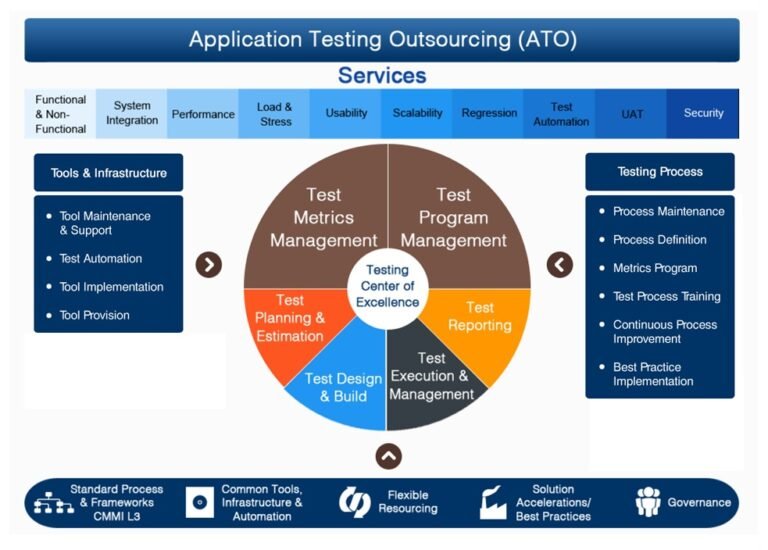In today’s fast-paced business world, efficiency and decision-making define the difference between companies that thrive and those that struggle to keep up. Organizations are under constant pressure to process vast data, make informed decisions quickly, and deliver seamless customer experiences — all while reducing costs. Traditional automation can only go so far. It executes tasks but doesn’t think.
Enter Agentic AI development services — a new era of artificial intelligence that empowers businesses to operate intelligently and autonomously. Unlike traditional AI or static automation, Agentic AI agents have the ability to reason, learn from data, and make context-aware decisions. They can analyze complex information, take initiative, and continuously optimize operations with minimal human intervention.
In this blog, we’ll explore how Agentic AI improves efficiency and decision-making across enterprises — reshaping the way modern organizations function, compete, and grow.
Understanding Agentic AI and Its Core Principles
Before diving into efficiency and decision-making, it’s crucial to understand what Agentic AI really is.
Agentic AI is the evolution of artificial intelligence where AI agents act autonomously to achieve defined objectives. These agents are not limited by static algorithms or human-defined workflows; instead, they perceive their environment, interpret data, make decisions, and take actions independently.
The core principles behind Agentic AI include:
-
Autonomy: Agents make independent decisions within defined ethical and operational parameters.
-
Adaptability: They learn and adjust behavior based on new information or environmental changes.
-
Collaboration: AI agents interact with humans and other systems to achieve common business goals.
-
Transparency: Decisions are explainable, traceable, and aligned with business values.
This combination makes Agentic AI a powerful tool for enterprises looking to go beyond automation — toward intelligent efficiency and strategic decision-making.
The Link Between Agentic AI and Business Efficiency
In traditional automation, efficiency comes from speed and consistency — machines completing repetitive tasks faster than humans. But Agentic AI introduces a more sophisticated form of efficiency: one based on intelligence, adaptability, and continuous improvement.
Here’s how Agentic AI development services drive operational efficiency across organizations:
1. Streamlined Workflows Through Autonomous Execution
Agentic AI agents can execute end-to-end business processes without constant human intervention. They analyze real-time data, identify bottlenecks, and make adjustments instantly.
For instance, in supply chain management, an AI agent can detect shipment delays, reroute deliveries, and notify customers automatically — eliminating manual oversight.
This kind of self-managing automation significantly reduces downtime, improves consistency, and enhances productivity.
2. Continuous Optimization Through Learning
Efficiency is not just about doing things faster — it’s about doing them smarter every time. Agentic AI agents learn from every interaction, decision, and outcome. Using reinforcement learning and adaptive algorithms, they continuously refine their actions to achieve better results.
For example, an AI-powered sales agent can analyze which outreach strategies work best and autonomously adjust future communication. Over time, these agents evolve into intelligent assistants that operate with near-human intuition but machine-level precision.
This learning-driven adaptability ensures that enterprise processes remain optimal, even as conditions change.
3. Seamless System Integration
Efficiency often suffers when systems operate in silos. Reliable Agentic AI development services focus on creating integrated ecosystems, where AI agents communicate across ERP, CRM, HR, and analytics platforms.
When all systems are synchronized, decision-making becomes seamless. A sales AI agent, for instance, can access data from marketing and inventory systems to generate real-time quotes and availability updates — enabling faster and more accurate customer responses.
This cross-system collaboration ensures that business processes remain fluid, transparent, and responsive.
4. Proactive Issue Detection and Resolution
Reactive problem-solving consumes time and resources. Agentic AI agents change that by predicting potential issues before they escalate.
Using predictive analytics, anomaly detection, and sensor data (in IoT environments), AI agents can detect deviations, alert teams, and even take corrective action autonomously.
In IT operations, for instance, an AI agent can detect server strain and automatically reallocate resources to prevent downtime. This proactive efficiency minimizes disruptions, saves costs, and ensures uninterrupted business continuity.
The Role of Agentic AI in Decision-Making
Making timely and accurate decisions is at the heart of business success — yet it’s increasingly complex in a data-saturated world. Agentic AI development services help enterprises transform data into decisions through intelligence-driven processes.
Here’s how:
1. Data-Driven Insights for Strategic Decisions
Agentic AI agents analyze structured and unstructured data from multiple sources — social media, financial systems, customer databases, IoT sensors — and synthesize it into actionable insights.
Executives no longer have to rely on intuition or outdated reports. Instead, they get real-time intelligence dashboards powered by autonomous agents that highlight trends, risks, and opportunities.
In finance, for example, an AI agent can forecast revenue fluctuations, track expense patterns, and suggest budget reallocations — supporting better, faster, and more accurate strategic planning.
2. Context-Aware Decision-Making
Unlike conventional AI systems, Agentic AI agents understand context — the “why” behind the data. They interpret external conditions, such as market trends or regulatory changes, and adjust their decisions accordingly.
For instance, in retail, if an AI agent detects a regional event affecting consumer behavior, it can automatically modify promotions or inventory distribution in that area.
This contextual intelligence enables enterprises to make decisions that are not only data-driven but also situationally relevant.
3. Collaborative Intelligence: Humans and AI Working Together
Agentic AI doesn’t replace human judgment — it enhances it. AI agents assist decision-makers by providing insights, recommendations, and forecasts while leaving final control in human hands.
This collaborative intelligence allows leaders to combine machine precision with human creativity. For example, in HR, an AI agent can shortlist candidates based on performance data, while HR managers make the final cultural fit decision.
The result is faster, more informed, and less biased decision-making.
4. Predictive and Prescriptive Analytics
Agentic AI goes beyond descriptive analytics (“what happened”) to predictive (“what will happen”) and prescriptive (“what should we do”) models.
Through advanced data modeling, AI agents can forecast future scenarios and recommend optimal courses of action. In manufacturing, for example, AI can predict equipment failure and suggest maintenance schedules — improving uptime and resource utilization.
By turning foresight into action, businesses can move from reactive to proactive decision-making.
How Agentic AI Enhances Enterprise-Wide Performance
Agentic AI development services impact every level of an organization — from operations and strategy to culture.
• Operational Level:
AI agents automate repetitive processes, manage workflows, and maintain real-time oversight, ensuring faster and error-free operations.
• Tactical Level:
Mid-level managers use AI insights to optimize resource allocation, project timelines, and cost structures.
• Strategic Level:
Executives rely on AI-driven intelligence to align company goals with market trends and innovation opportunities.
This three-tier enhancement creates a cognitive enterprise — one where every decision, at every level, is informed by data and intelligence.
Case Examples of Agentic AI in Action
1. Financial Sector:
Banks use Agentic AI agents to detect fraud in real time, analyze spending behavior, and automatically adjust credit limits based on customer risk profiles. This ensures secure, data-driven decision-making.
2. Manufacturing:
Factories deploy AI agents that monitor equipment performance, forecast supply shortages, and optimize production schedules — minimizing waste and downtime.
3. Healthcare:
Medical AI agents assist in diagnostics by analyzing patient data, identifying anomalies, and recommending treatment plans. This improves both efficiency and patient outcomes.
4. E-commerce:
AI agents analyze user behavior, optimize inventory, and personalize recommendations, improving conversion rates and customer loyalty.
Each of these examples demonstrates how autonomy and intelligence together enhance operational excellence and strategic clarity.
The Measurable Impact: Efficiency + Decision Intelligence
When implemented correctly, Agentic AI development services deliver measurable improvements such as:
-
30–50% faster operational cycles due to automation of decision-heavy tasks
-
Reduced human error rates through consistent, data-backed analysis
-
Improved ROI via optimized resource usage and predictive maintenance
-
Enhanced agility through adaptive systems that respond in real time
Businesses no longer waste hours on data interpretation or manual intervention. Instead, they operate in a continuous feedback loop — where AI agents learn, decide, and refine outcomes autonomously.
Building a Reliable Agentic AI Ecosystem
To achieve these results, enterprises must partner with experienced Agentic AI development providers who offer:
-
Robust architectural design for scalability and reliability
-
Integration with existing enterprise software (CRM, ERP, analytics tools)
-
Custom AI model training aligned with organizational goals
-
Transparent and explainable AI frameworks for trust and compliance
-
Continuous monitoring, maintenance, and retraining services
By ensuring these foundational elements, organizations can maximize the efficiency and decision-making potential of their AI initiatives.
The Future of AI-Driven Decision-Making
Looking ahead, Agentic AI will evolve from an assistant role to a strategic collaborator. Future systems will use neural reasoning, multi-agent collaboration, and emotional AI to understand context on a human-like level.
Businesses will not only make faster decisions but also better ones — guided by AI that considers both data and intent.
In the coming years, we’ll see boardroom discussions, marketing campaigns, and operational strategies co-designed by AI agents capable of simulating multiple outcomes and recommending optimal paths — redefining what decision-making means in the digital enterprise.
Conclusion
Agentic AI development services represent a new frontier for enterprises seeking to enhance efficiency and intelligence. By combining automation with reasoning, adaptability, and learning, Agentic AI turns organizations into dynamic, self-optimizing systems.
Efficiency is no longer about doing more with less — it’s about doing everything smarter. Decision-making is no longer limited by human speed — it’s elevated by machine intelligence.
As businesses move forward into an increasingly digital and data-driven world, those embracing Agentic AI will lead the way — making faster, more informed decisions and achieving operational excellence through true intelligent automation.





